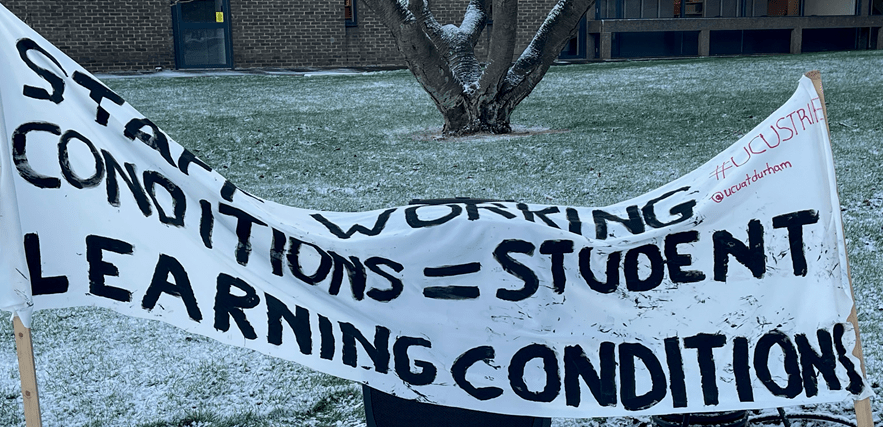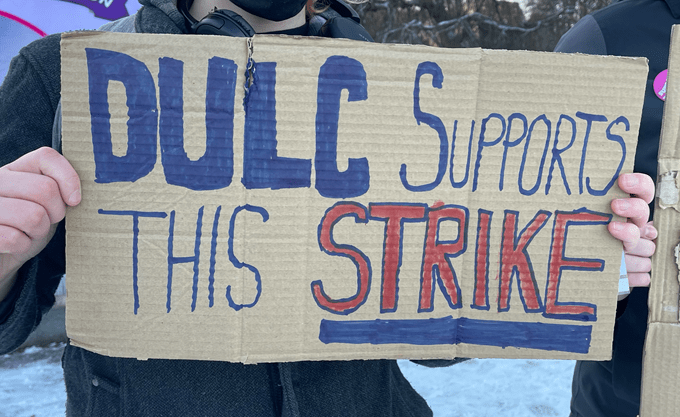By a UCU member in the Northern Region
No fewer than 58 UK universities were on strike this week as part of the University and College Union (UCU) most recent industrial action. There was widespread support for the strike and there would have been more out, but for the fact that in some places there was a majority for strike action, but the number voting did not meet the threshold imposed by the Tories’ anti-union laws.
There were two separate ballots for this dispute – one relating pensions, specifically for pre-92 universities whose staff are in the USS pension scheme (post 92 universities did not take part in this ballot as they are in a separate pension scheme). This relates to attacks on pensions, which UCU had successfully fought off in action in 2018 and 2019-2020, but the issue has reared its head again.

The second ballot took place in all institutions and relates to the ‘Four Fights’: pay (which has fallen by 20% in real terms in the past 12 years), workload, the gender and ethnicity pay gap and casualisation.
The 58 institutions taking 3 days of action this week were those which achieved over 50% in the ballots, some further institutions narrowly missed the threshold, such as Newcastle University who achieved a 49.5% turnout and some institutions are opting to re-ballot. Overall, in the USS pensions ballot, 76% of members who voted backed strike action, and 88% action short of a strike. Overall turnout was 53%, but this was not an aggregated ballot. In the Four Fights ballot, 70% voted for strike action, 85% for ASOS, overall turnout 51%, again a disaggregated ballot.
There were strong shows of solidarity on picket lines this week, with considerable support from students widely reported. Although there are distinct issues within the dispute, it is wise to view it initially in the light of the increasing commodification of Higher Education and the creeping effect of neoliberalism which is embedding itself in the culture in our universities, impacting so severely on both staff and student experience.
All university staff empathise with students
Although all university staff absolutely empathise with the disruption students have faced during the pandemic, striking staff have student interests at heart, knowing that staff pressure impacts directly on student experience.

For staff, the theft of pensions for those in the USS pension scheme in pre-92 universities, coupled with significant loss of pay in real terms has brought many to breaking point. As one UCU member said, “I voted for strike action because I see my colleagues on their knees, people are working 60+ hour weeks just to stay on top of their workload, and when you couple that with the loss of pay in real terms, it is unsustainable.”
Casualisation is now commonplace in Higher Education, with part time and temporary contracts the norm. The route from a PhD to a teaching career is now perilously insecure, which results in high staff turnover and low morale. One third of academic staff are on insecure contracts. The gender pay gap sits at 15%, and of the 22,810 professors in the UK, only around a third are women, and the figure for black professors is staggeringly low, at 1%
Meanwhile, the average pay for vice-chancellors is £269k pa. As the NUS President Larissa Kennedy said, “The onus for minimising disruption for students lies with university bosses: they must come back to the table to address the clear issues in how higher education is currently run.”
Donate to the fighting fund here https://www.ucu.org.uk/fightingfund
Sign the NUS petition here https://email-nus.org.uk/p/5BGA-9DB/strike-letter



